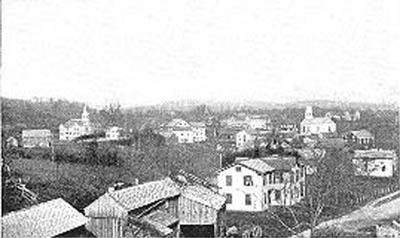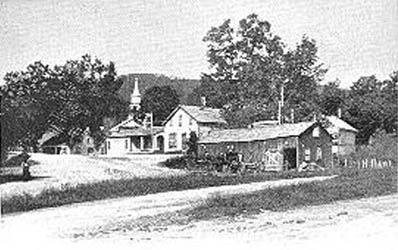finds the average American citizen, and that oftentimes quiet villages yield surprising results when subjected to critical analysis. The two Granvilles,

A Glimpse of Old Granville
|
What can be said to their credit cannot be passed upon population; and yet each might be written what was said of one of them in an after-dinner address a few years ago, when Edward Everett Hale told a story like this:
"I recently formed the acquaintance of a Russian gentleman who had been traveling through the United States on a mission of investigation for his government. He had made good use of his opportunities and was full of opinions about the men and things he had seen. Among other things he said that he had been peculiarly impressed by the advantages enjoyed by American society in the smaller and little known places, where he had often found culture and comfort abounding which in other countries were confined to urban life. The theme was so novel to him that he dwelt upon it at some length, mentioning the places in the several states where he had particularly noticed the society,—and among the favored ones was Granville, Ohio."
The history of the mother town properly began in the year 1735, when a young man named Samuel Bancroft and his bride, Sarah White, left the settlement of West Springfield and pushed into the wilderness until, six miles from the nearest settler, they camped upon a little plain in the uplands, where

Another Glimpse of Old Granville
|
— page 98 —